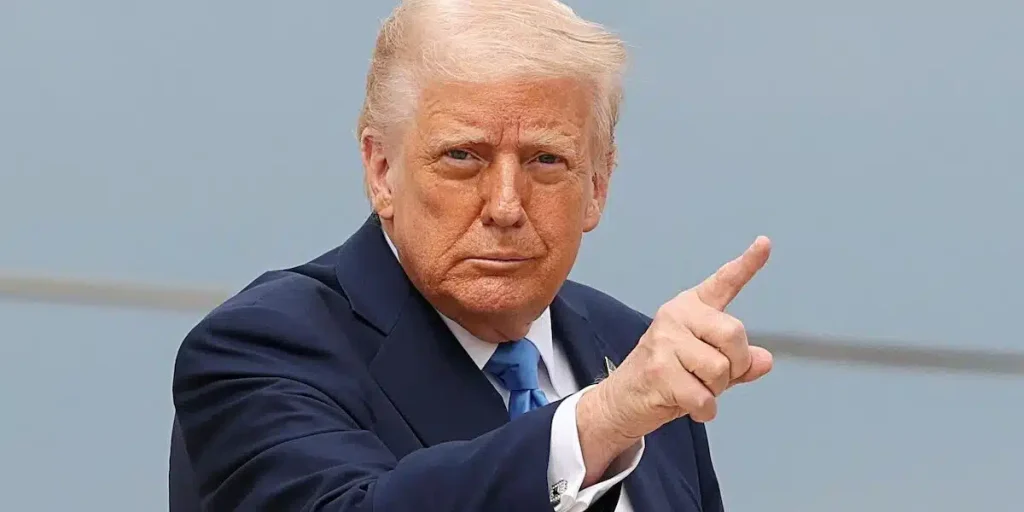
U.S. President Donald Trump has defended his administration’s decision to impose a 14% tariff on goods exported from Nigeria, stating that the move was in response to Nigeria’s long-standing restrictions on American products.
The tariffs, part of a broader wave of trade penalties branded as ‘Liberation Day’ measures, were announced last week and target nearly every U.S. trading partner.
According to a fact sheet released by the Office of the United States Trade Representative (USTR) on Monday, Nigeria enforces import bans on 25 different categories of goods from the U.S.—a policy the Trump administration argues has created substantial trade barriers and hampered the ability of American companies to operate fairly within the Nigerian market.
“These import bans disproportionately affect American exports in key sectors such as agriculture, pharmaceuticals, beverages, and consumer products,” the USTR stated. “Nigeria’s restrictions on items like poultry, pork, beef, fruit juices, medicaments, and spirits undermine U.S. access to one of Africa’s largest markets.”
The USTR also emphasized that these policies have cost American exporters millions in lost revenue, citing them as part of a broader pattern of unfair trade practices.
President Trump has claimed that Nigeria maintains an average 27% tariff on U.S. imports—nearly double the rate imposed by the U.S.—and described the imbalance as a form of economic sabotage. “We’re simply demanding fair play,” Trump said in remarks following the announcement. “America will no longer tolerate one-sided trade.”
The global reaction to Trump’s sweeping tariff announcement has been swift and severe. Stock markets across the globe experienced sharp declines, with major indices in the U.S., China, Europe, and India all posting losses. According to Bloomberg, the world’s top 500 billionaires collectively lost over $208 billion within 24 hours of the policy rollout—marking the fourth-largest one-day drop in the history of the Bloomberg Billionaires Index.
Among the international responses, China and Canada have announced retaliatory trade measures. China, in particular, has introduced a 34% counter-tariff on a broad range of U.S. goods and has implemented export restrictions on several critical rare earth elements, pharmaceutical components, and agricultural products. Canadian authorities have hinted at targeted levies on American-made machinery, auto parts, and consumer electronics.
The escalating trade tensions have raised concerns among global economists and policy analysts, many of whom warn that an extended tariff war could plunge the world economy into a new era of instability and contraction.
Back in Nigeria, economic stakeholders are watching closely as the impact of the U.S. tariff unfolds. Trade experts warn that the 14% hike could negatively affect Nigerian exports, particularly in the oil, textile, and agro-processing sectors. Some have also called for a reevaluation of Nigeria’s import policies to prevent further diplomatic and economic fallout.
While no official response has been issued by the Nigerian government as of press time, sources within the Ministry of Trade and Investment suggest that discussions are underway to assess the implications and potential responses to the U.S. decision.





